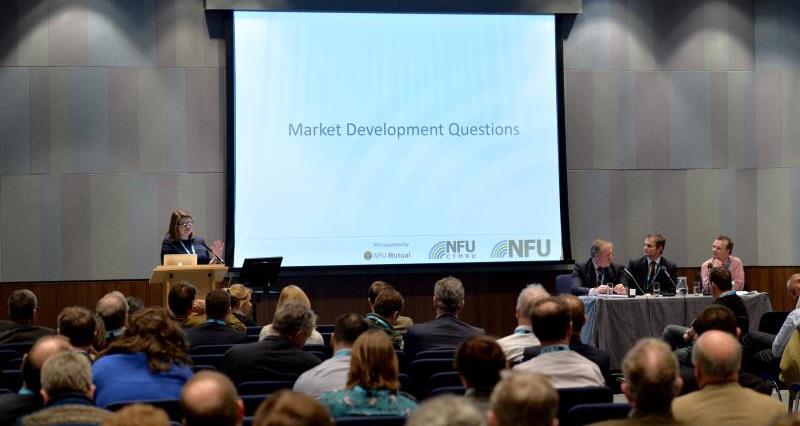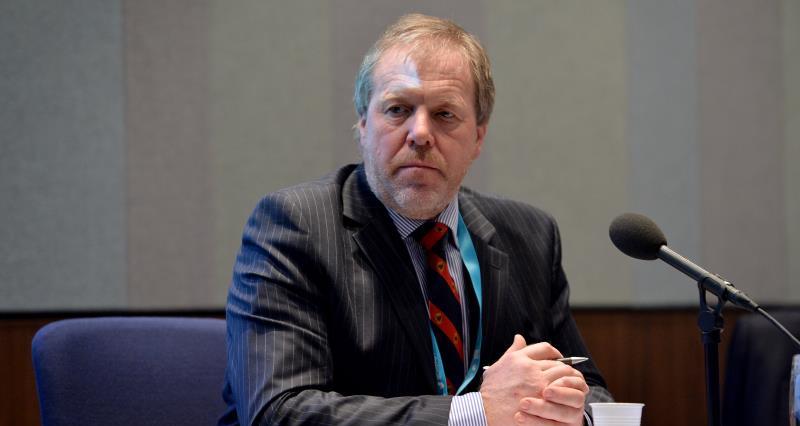Download a copy of the presentation here
Sowing the seed
Chaired by Crop Production magazine’s Tom Allen-Stevens, delegates heard from NFU board chairman Mike Hambly and expert sector staff.
The market implications of Brexit were ever-present, as Mr Allen-Stevens noted “we’ve almost got the seed in the ground to be sold in a post-Brexit world”.
But a different set of growth prospects dominated, with the under-threat reauthorisation of glyphosate, the NFU’s emergency application for neonicotinoids to alleviate pest pressure on areas of the English oilseed rape crop, a Department for Transport consultation which could cap UK biofuels and erucic acid contamination and testing all on the agenda.

Communication is vital
On glyphosate, chief crops adviser Guy Gagen said: “We heard from the Secretary of State that she believes it’s safe. Regulatory bodies across the world have said it’s safe.
“But when we talk to MPs and MEPs they say they get all sorts of letters and tweets, but not so many from farmers. They tell us our science is good, probably better than our opponents’, but that it’s not public opinion.”
He urged farmers to make their voices heard directly with MPs and pointed to resources available to members on NFUonline.
Neonicotinoids
Mr Gagen said the very limited approach to the neonicotinoids application was “not ideal”, but that focusing on areas where it is most likely to be effective offered the best chance of government backing. On a future pesticides framework, he said: “I’m fearful about the logical conclusion of the European regulation and would be concerned if we were reliant on it without being able to make changes. An opportunity exists and we’ve already had meetings about what a UK framework could look like.”
He said it was “not a totally alien idea” that post-Brexit UK farmers might eventually be able to use products their European counterparts could not.
READ NEXT:
- Get all the news from #NFU17 - visit our Conference Hub
- NFU17: Three key priorities for dairy
- NFU17: A changing world for livestock
- NFU17: Crop protection dominates cereals session
- NFU17: the future of the beet crop
- Liam Fox to receive British food hamper sent from NFU Conference
- NFU17: Videos - mapping the brave new world
- NFU17: 'Produce' workshop embraces innovation
- NFU17: Making the most of the tenant sector
post Brexit - NFU17: Working together for an organic future
- NFU17: Next generation paves the way
- NFU17:
Horizon-scanning for the environment - NFU17: Striking a good deal for the uplands
- NFU17: Paving the way for Welsh agriculture
- NFU17: Farming's 7:1 return on investment revealed
- NFU17: 'Consume' workshop explores trends
- NFU17: Delegates get a worldwide take on our post-Brexit future
- NFU17: Contract check service will save members time and money
- NFU17: Picture highlights of day one
- NFU17: Post-Brexit deals - action must start now
- NFU17: 75% bridging payment WILL be available, says Leadsom
- NFU17: 'Give farmers a more certain future,' NFU urges SoS
- NFU17: Conference spotlight for post-Brexit trade and investment
- NFU17: Agri research vital for farming's future, says report
- NFU17: Watch the opening video
